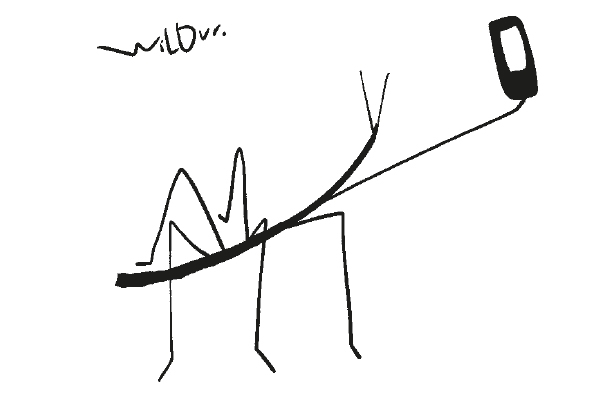Matt Hancock, don’t retire just yet – we may need you back. There’s a new terror spreading across Britain – and even better for the tabloids, this one seems to have come from France.
It is all a big and rather silly panic
The great bedbug scare bubbled up a few weeks ago as an infestation in Paris, but within days the critters seemed to have jumped the Channel, quite possibly brought here by rugby fans – or by a pair of Australian tourists who claimed to have been bitten on an overnight train from Austria. Within a week the great terror had reached Luton, Stevenage and Hull, where the Crown Court had to be closed. Then two year old Vinnie Perona-Wright was allegedly ‘eaten by bed bugs’ at Butlins in Minehead (which seems to mean he received a number of bites and had to be moved to share his sister’s bed).
Obviously, we need a lockdown – and for all travellers from the Continent to be quarantined for a fortnight and their bedding burned on their departure. Can that be far away, when Lucy Easthope, Professor in Practice of Risk and Hazard at the University of Durham, has tweeted: ‘Britain is not ready for an invasion of bedbugs,’ As we learned from Covid, and Hancock explained in his evidence to the Covid inquiry, when you are faced with an epidemic you have to hit it hard and hit it early. God help Rishi Sunak if he has not already called a Cobra meeting.
Bedbugs are just the latest manifestation of the mass hysteria that seems to drive modern society. Whether it be Storm Babet, the latest ‘climate-related disaster’ due to strike Britain later this week, ‘hairy’ crabs (that have apparently ‘invaded’ our waterways from China) or ladybirds (infestations of which have also been reported in recent weeks) we can’t cope any longer with the natural world. And if something isn’t proliferating, then it’s dying out. How ironic that a few months ago, as I wrote here in April, the country was panicking about the loss of insects, after David Attenborough quoted a spurious statistic claiming that Britain has lost 60 per cent of its flying insects in 20 years. Apparently, though, it is only the ‘good’ insects that are suffering. The nasty ones like bedbugs are having a whale of a time.
Far from being some new and sinister threat, bedbugs have been with us for centuries. They were described in a pamphlet published by John Southall in 1730, that among other things warned householders grimly ‘let no washer-woman’s basket be brought into your house’. By the 1930s, the Ministry of Health was warning that in some parts of Britain almost all homes were occupied by bedbugs at some time of the year. Across Europe, a third of buildings were said to be infested. Not for the first time in the practice of public health, the treatment turned out to be worse in some cases than the disease. Chemists sold mercury chloride and arsenic preparations as ‘bedbug poison’, or even hydrogen cyanide gas, causing deaths from accidents as well as encouraging real life Agatha Christie-style deviants with an eye on their wives’ inheritance.
What you perhaps haven’t read so far in the great bedbug pandemic is that the infestations of bedbugs in the early 20th century were only really suppressed by the arrival of DDT, that, when sprayed over walls, floors and furniture, could keep the blighters at bay for at least six months. Unfortunately, the long-lasting nature of DDT also helped devastate wildlife beyond the home, that led to it being banned, giving bed bugs a chance to return.
It is all a big and rather silly panic, but then what would we worry about if it wasn’t for bedbugs? My guess is that when the great bedbug infestation dies down it won’t be down to people squeezing their pillows in the freezer and the like – it will be something like the eruption of all-out war across the Middle East, that displaces the bugs from their very favourite habitat: tabloid front pages.







Comments